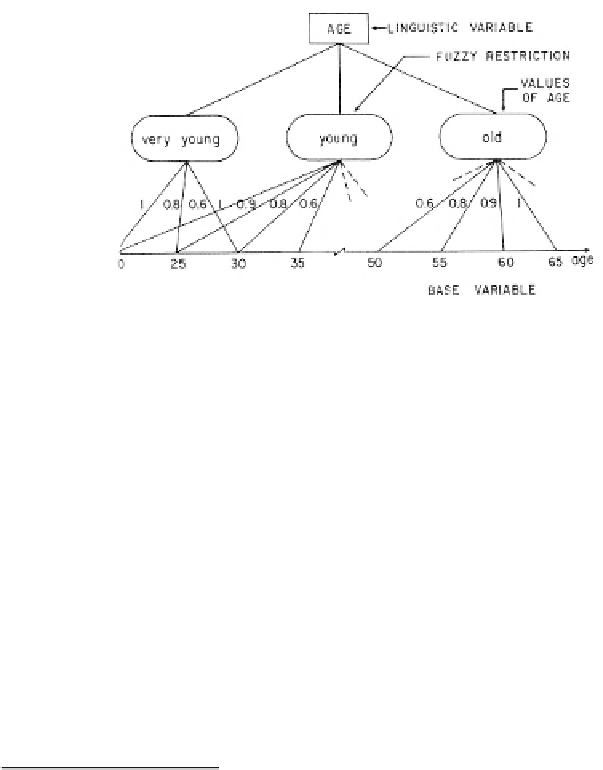Information Technology Reference
In-Depth Information
formulation and results may be tolerable. The human brain is designed to take ad-
vantage of this tolerance for imprecision whereas a digital computer, with its need
for precise data and instructions, is not.” [108, p. 132] He continued: “Although
present-day computers are not designed to accept fuzzy data or execute fuzzy in-
structions, they can be programmed to do so indirectly by treating a fuzzy set as a
data-type which can be encoded as an array. [...] Granted that this is not a fully
satisfactory approach to the endowment of a computer with an ability to manipu-
late fuzzy concepts, it is at least a step in the direction of enhancing the ability of
machines to emulate human thought processes. It is quite possible, however, that
truly significant advances in artificial intelligence will have to await the develop-
ment of machines that can reason in fuzzy and non-quantitative terms in much the
same manner as a human being.” [108, p. 132]
9
Fig. 3.5
Linguistic Variable Age
3.4
Fuzzy Sets and Systems in Medicine
Reasoning with unsharp concepts is standard practice in medical thinking. In 1926,
the in chapter 3.1.1 already mentioned Polish physician and philosopher Ludwik
Fleck expressed this fact in striking manner: “It is in medicine that one encounters
a unique case: the worse the physician, the 'more logical' his therapy.” Fleck said
this in a lecture to the
Society of Lovers of the History of Medicine at Lvov
entitled
“Some specific features of the medical way of thinking”, which was published in
1927 (in Polish) [27]. Even though he was close to the Polish Lvov-Warsaw-School
of logic, he opposed the view that medical diagnoses are the result of strong logical
reasoning. He thought that medical symptoms and diseases are essentially indeter-
minate and that physicians rely on their intuition rather than on logical consequences
to deduce a disease from a patient's symptoms. His lecture begins with the follow-
ing sentence: “Medical science, whose range is as vast as its history is old, has led to
9
For more details on the history of Fuzzy Sets and Systems see chapters IV - VI in [77].





